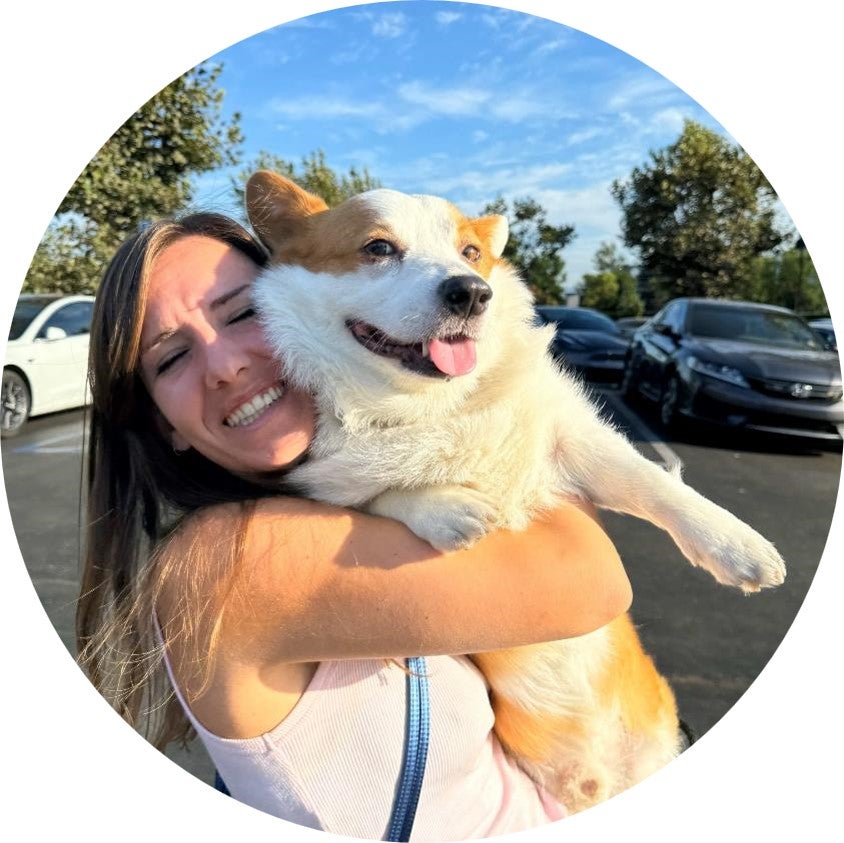Jennifer Dukov

GU IMSD Fellow
2024 Cohort
I’ve learned that having a trusted mentor involved from the beginning can greatly aid in the challenging process of crafting a convincing narrative. Let your mentor in on the ground floor of the application process!”
The Georgetown University Initiative for Maximizing Student Development (GU IMSD) is designed to develop a diverse cadre of doctoral scholars prepared for careers in the biomedical scientific workforce. Our incoming GU IMSD Fellows share their interests, career goals, and advice for aspiring Ph.D. students.
About Jennifer
Originally from Los Angeles, California, Jennifer Dukov is pursuing a Ph.D. in Biology at Georgetown. She obtained a B.S. in Biological Sciences and a B.A. in English from the University of California, Irvine.
How did you become interested in your area of study?
I am broadly interested in developmental biology, particularly in understanding the genes that drive organogenesis and the effects of their disruption. My recent research using zebrafish, a transparent model organism that allows for real-time visualization of development, enabled me to witness the molecular forces driving skeletal development. Fueled by this exciting work, I have entered the Ph.D. program with a focus on developmental neurobiology. I have always been interested in neuroscience, so combining these interests with my background in developmental biology felt like a natural progression. I’m excited to gain experience and deepen my understanding of this sub-discipline.
What are you most excited about as you join the GU IMSD program?
In my short time in the Ph.D. program at Georgetown University, I’ve come to appreciate the importance of diverse support networks. I’m eager to participate in the IMSD program and learn from this interdisciplinary group of scientists with varied personal and professional backgrounds. I believe the program will help us reflect on our experiences and develop transferable professional skills that we can apply beyond academia. I also look forward to contributing to and benefiting from the support of the IMSD group!
How have your previous experiences or background influenced your personal or professional development, interests, or career goals?
My first experience in a cancer biology lab involved investigating the role of EphrinB2 signaling in an aggressive form of multiple myeloma, a B-cell malignancy. While using a positive control to stimulate myeloma cells, I discovered that EphrinB2-overexpressing cells were more responsive to our positive control, suggesting an additional mechanism by which EphrinB2s function. Although this wasn’t within the project’s scope, it spurred ideas for follow-up experiments. My mentor wholeheartedly supported my endeavors, an attitude that I’ve found to be characteristic of the academic setting and something that has continuously drawn me to academia.
What advice do you have for applicants who want to pursue doctoral programs?
I’ve gone through two back-to-back application cycles for Ph.D. programs. While I did receive an additional publication acknowledgment during this time, the most significant improvement came from refining my essays. In the previous cycle, I sought feedback from multiple people before sharing my essays with my principal investigator/mentor. I’ve learned that having a trusted mentor involved from the beginning can greatly aid in the challenging process of crafting a convincing narrative. Let your mentor in on the ground floor of the application process!
What experiences would you highlight from your journey in science?
My path to a Ph.D. program has been non-traditional. I began at a community college, where I double majored in the arts and sciences, taking six years to complete my dual degrees. While my journey hasn’t been linear, each detour has been crucial to my development. For instance, exposure to conversations between scientists and clinicians taught me how each group approaches scientific questions differently. Since scientists often need a translational aspect to justify their research, this experience continues to shape my perspective. During the IMSD program, I hope to continue challenging myself with new experiences and learn to communicate effectively across diverse contexts.
- Tagged
- IMSD
- IMSD 2024 Cohort
